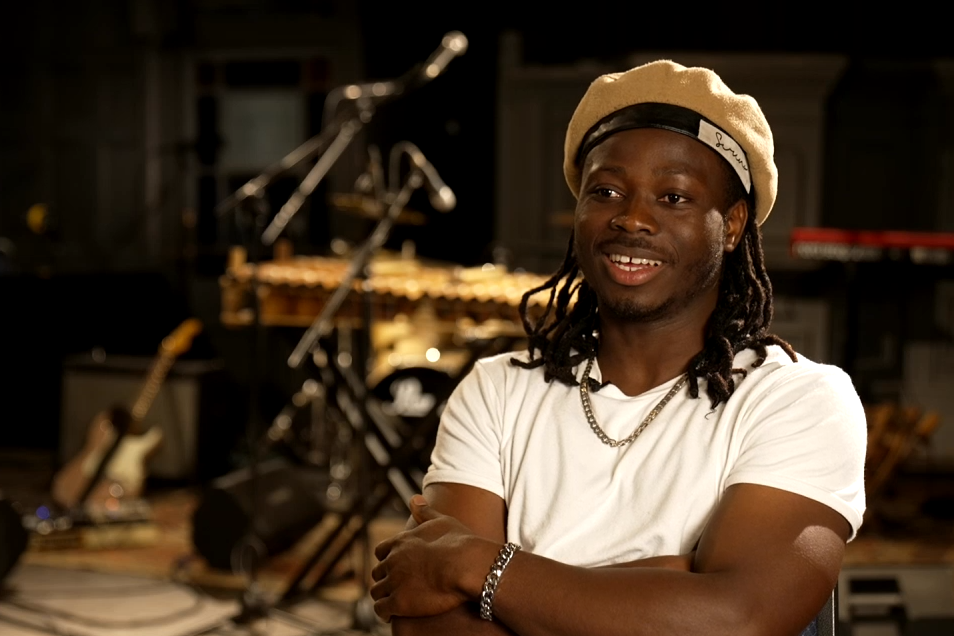Wales is a nation of storytellers, tell us your story…
I am Malinké in origin from Guinea in West Africa and come from a long line of hereditary griot/djeli akin to the ancient Welsh bardic tradition. My family history can be traced back to the thirteenth century and the first balafon (my preferred instrument and the instrument of both my parents - a traditional African wooden xylophone), from which the name Kouyaté originates.
The rich folklore of the Mandingue is my heritage and part of the role of the griot is to preserve the history, stories, rhythms, and songs of our people and to share them and pass them on to the next generation.
What is your connection to your corner of Wales?
I came to Wales to be with my wife - a Welsh woman living in Cardiff but originally from Pembrokehire. Since relocating here permanently in 2019 I have toured Wales and have made connections across the country. I have even played my balafon in the Snowdonian mountains! I have also made wonderful connections and collaborated with Welsh artists including Gruff Rhys and Lisa Jên Brown.
Wales has stories of legends going back millennia through to the modern today, does your music connect to these, what is their story?
Similarly my griot tradition means that I weave the stories of our folklore into my music. The last single I released from my EP was "Miniyamba/Gadael y Dref" - a reworking of a traditional West African song that enchanted Gruff Rhys when I supported his Pang! album tour, which made it the perfect choice for a collaboration. The song tells of an ancient legend of a serpent that protects a village by allowing no one in or out, until a girl who wants to marry tries to strike a deal with the great snake "Miniyamba", and her hopes and fears when finally able to "Gadael y Dref" (leave the village).
Linguistics and language play a huge part in Welsh culture, what is it that makes it so special?
I love the sound of Welsh and have incorporated Welsh lyrics into several of my songs including: Aros I fi Yna (the title track of my EP), Diarama-Diethryn, Ti a Fi, and Miniyamaba/Gadael y Dref. For me moving to Wales it was natural for me to want to learn the language as well as English. In my country we use several tribal languages as well as French, being multilingual and creatively using different languages is the norm. The lyrics Gruff wrote and sings on Miniyamba complemented my Malinké words beautifully.
My songs include lyrics in Susu (my first language), Malinké (my tribal language), Baga, and Fula (other tribal languages common in Guiea) as well as the language of my new home - Cymraeg!
Wales has often been known to be a land of storytellers, yourselves included through your music. As Wales evolves and new sounds come to the forefront, what kind of Wales do you see the torch being passed onto in the future?
I am relatively new to Wales as a country having first visited in 2018, so still feel I am learning about its traditions, history, and culture. Wales has been a welcoming place, where I feel comfortable to call home now. I feel Wales is a place that is an inclusive country, and will evolve new fusions and collaborations that maintain traditions but at the same time keep them relevant and exciting to future generations.
What are your Celtic connections?
My Celtic connections are with my adopted home of Wales, the Welsh language, my Welsh family, and the extended family of support that has embraced me and my music across Wales, Scotland and Ireland.
You’re embarking on new international opportunities, what collaborations or opportunities are you most looking forward to?
I love to travel and to share my music and culture with new audiences. I'm looking forward to new adventures and am open to diverse collaborations.

